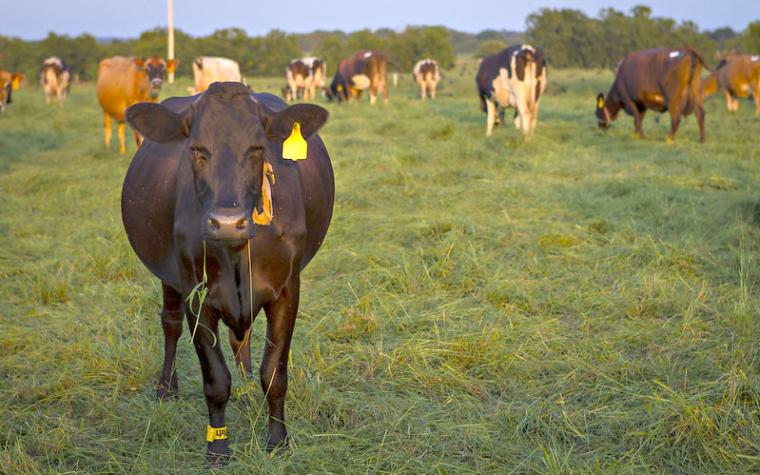
Dealing with cattle herd anaplasmosis
STOCKTON, Mo. – “Summertime brings factors that lead to anaplasmosis in cattle operations,” says Patrick Davis, University of Missouri Extension livestock field specialist. Anaplasmosis can affect cattle operation performance due to calf abortions, decreased weight gain, bull infertility and animal death.

Marketing matters in direct-to-consumer beef sales
FORSYTH, Mo. – Selling beef directly from the farm to consumers gained significant popularity during the COVID-19 pandemic. “Though adoption has slowed, selling direct to consumers remains a popular option for Missouri beef producers as an alternative to selling live animals, as it allows the producer to capture additional value otherwise obtained by others in the food processing chain,” said Jacob Hefley, University of Missouri…

Spring SW Missouri bull breeding soundness exam day results
STOCKTON, Mo. – “Bull breeding soundness exams (BSEs) are important to make sure bulls are ready for the upcoming breeding season,” says Patrick Davis, University of Missouri Extension livestock field specialist. The exam evaluates bull physical and reproductive soundness. Using bulls that fail this exam can lead to poor conception, pregnancy, calving and weaning rates, which results in poor operation productivity and profitability,…
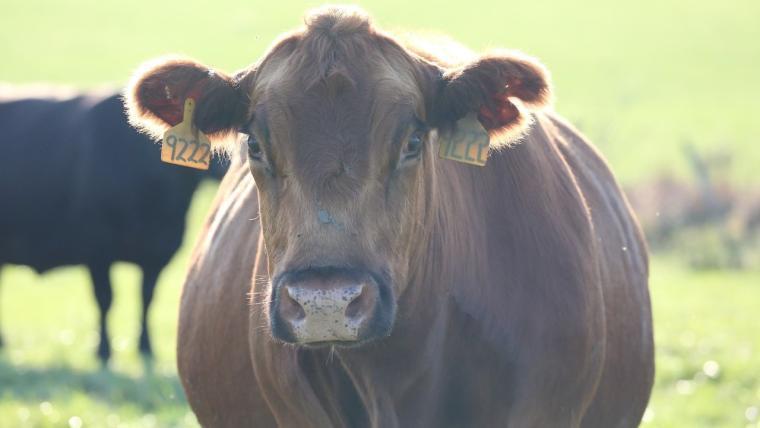
Management strategies to reduce pink eye in cattle
Learn management strategies to reduce pink eye in cattle, including fly control, pasture care, and preventive treatments.

Sunn hemp can boost summer pastures
Learn how planting sunn hemp in summer can enhance forage quality, fix nitrogen and support livestock through heat and drought.

Can high cattle prices pay for mistakes?
High cattle prices boost profits, but mistakes cost more. Smart management ensures gains today and security tomorrow.
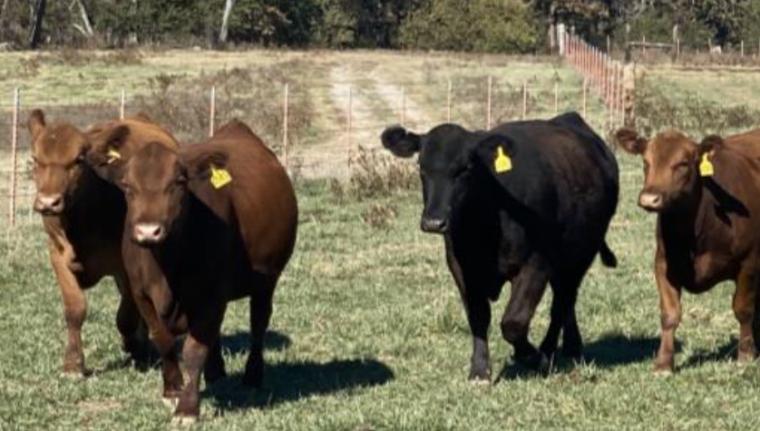
Use heifer pre-breeding exams as a culling tool and to prepare for breeding season
Learn how pre-breeding exams assess reproductive tract, pelvic area, body condition and soundness to guide culling and retention of heifers.

Saving the herd with milo grazing
See how grazing standing milo rescued a herd during drought by cutting winter feed costs and labor.
Plans for weaned fall-born calves
Learn how to manage weaned fall-born calves using feed cost and value of gain to guide profitable decisions.
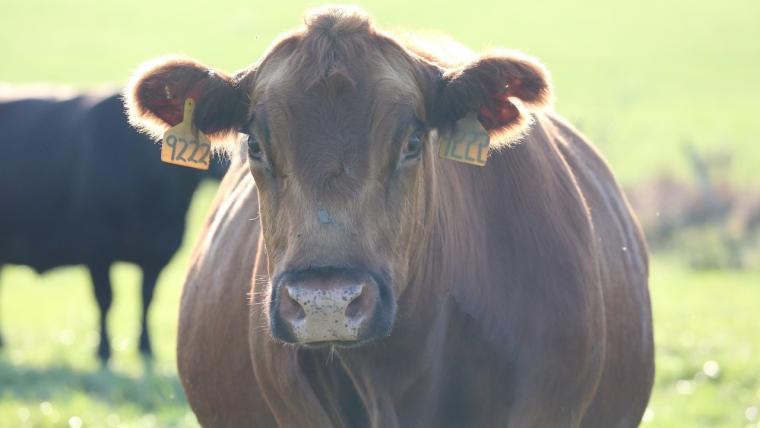
MU livestock specialists on new MDA exhibition rules
New exhibition rules issued by the Missouri Department of Agriculture late last year for showing cattle and swine at county fairs and exhibitions go into effect this year. University of Missouri Extension specialists say the changes encourage healthy animals.
What to do if you're short on hay this winter
Learn strategies to stretch hay, use supplements, and manage cattle efficiently during a winter hay shortage.
What to feed when there's nothing to feed
Tips for feeding cattle during low hay supplies, including alternative feeds and strategies to reduce costs and maintain herd health.
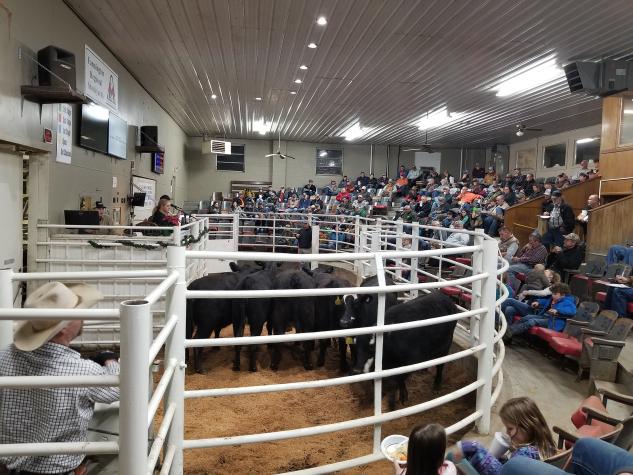
MU Show-Me-Select program had successful 2023
Show-Me-Select heifer program saw strong 2023 sales, high-quality heifers, and growing demand despite drought challenges.
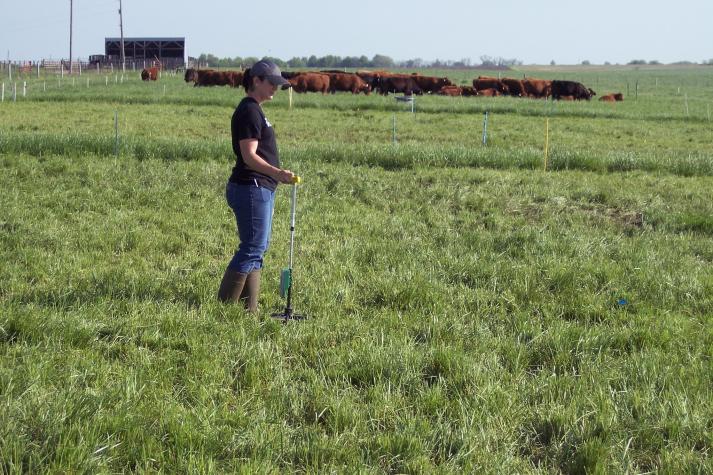
10 tips to bulletproof your beef operation
Boost beef farm resilience with expert tips on grazing, hay storage, herd health, and financial strategies to thrive through cycles and drought.
A No. 2 pencil is a beef producer's best tool
COLUMBIA, Mo. – One of the most important tools for livestock producers is a sharp No. 2 pencil. The pencil and some basic arithmetic can help take the emotion out of desperate measures to find feed. When you do the math, buying grain or other alternative feeds may be the best bang for the buck, says University of Missouri Extension agricultural business specialist Wesley Tucker.
Early weaning calves to reduce nutrient needs during drought
STOCKTON, Mo. – “Early wean calves to reduce cow herd nutrient needs to match drought-limited feed resources,” says Patrick Davis, University of Missouri Extension livestock field specialist. In addition, early weaning can improve calf performance because calves are put on a more nutritious diet following weaning.Davis discusses strategies to help cattle producers be successful in early weaning calves:
Things to consider as you feed your way through the drought
“Cattle producers are dealing with varying degrees of drought and forage resources,” says Patrick Davis MU Extension livestock field specialist. Some cattle producers have received adequate rain and are recovering from the 2022 drought through rebuilding forage and cattle resources. Other cattle producers have received limited rain and are continuing to deal with drought conditions from 2022 with less resources in 2023.
It's time to remove fescue seed heads to reduce toxins
Removing fescue seed heads helps reduce toxins, improve cattle health, and boost pasture quality through clipping, haying, or spraying.
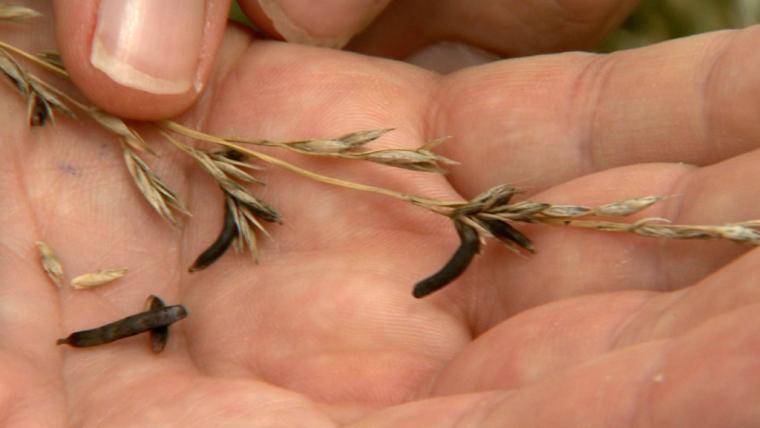
Time to scout for ergot
COLUMBIA, Mo. – University of Missouri Extension state forage specialist Craig Roberts says now is the time to check for ergot in the seed heads of grasses. Ergot can cause severe illness in livestock, especially cattle and horses. One early sign is yellow syrup drops called honeydew in flowering seed heads. Honeydew hardens and turns into dark ergot bodies, which look like mouse droppings and are up to 10 times the size of the grain.
Extension specialist gives 4 O's for 'crazy' cows
Learn the 4 O's—open, old, ornery, other—to cull unproductive cows and protect herd profitability.
MU Extension Feedlot School set for March 22-23, Kirksville
Missouri cattle producers: Attend the Feedlot School in Kirksville, March 22-23, to learn about cattle nutrition, health management, and economics.
Forage expert gives 4 top reasons to frost seed legumes
Frost seeding legumes boosts pasture yield, cattle health, and reduces fertilizer costs in Missouri fields.
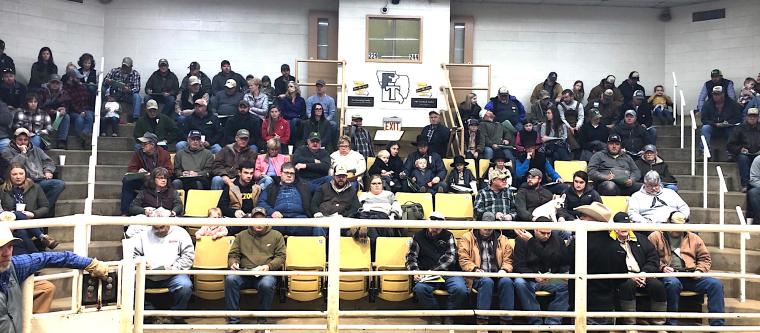
Show-Me-Select heifers average more than $2,600 per head in fall sales at Fruitland
Show-Me-Select heifers averaged over $2,600 per head in Fruitland fall sales, with strong demand for top genetics.
Boost profits by frost seeding legumes now
Frost seed legumes in cool-season pastures to boost cattle weight and profits while improving pasture health.
Beef producers: 'Get your house in order' in 2023
KIRKSVILLE, Mo. – Beef producers should approach 2023 with cautious optimism – matched with resolutions of good management and investment in infrastructure, says University of Missouri Extension agriculture business specialist Wesley Tucker.
